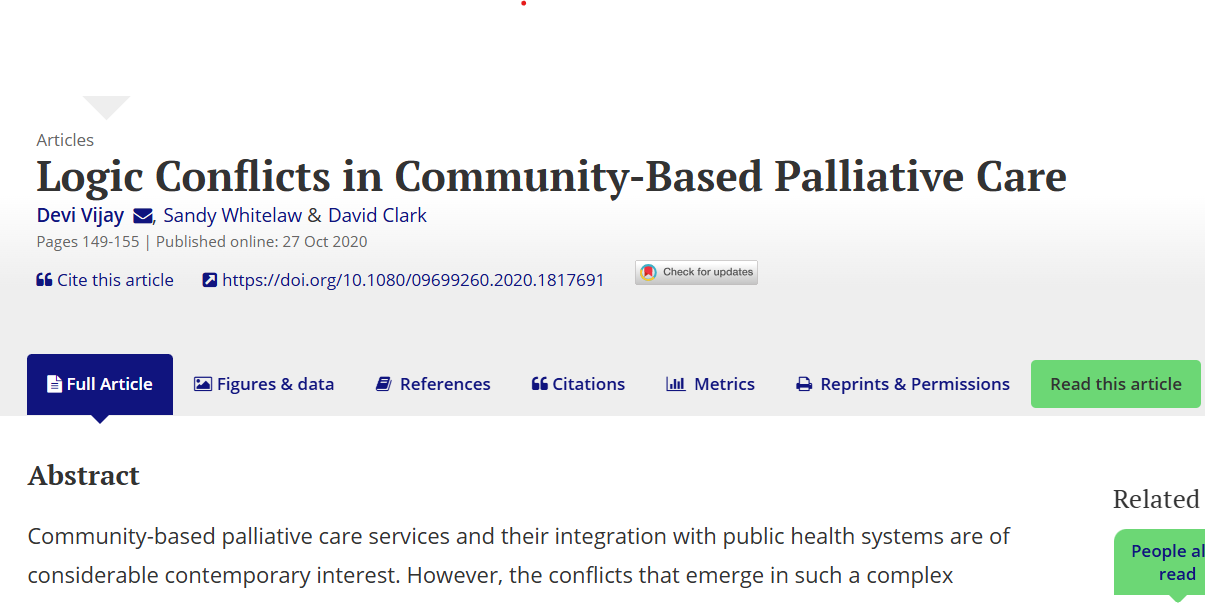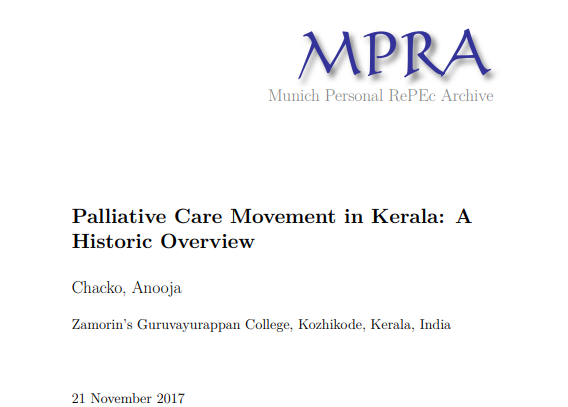Islamic Activism and Palliative Care: An Analysis from Kerala, India

Religion has re-emerged as a significant force in the political and socio-cultural spheres, with growing interest in its intersections with development. This chapter examines the Islamic activism within the palliative care movement in Malappuram, a Muslim-majority district of Kerala, India, against the backdrop of the state's unique developmental model. The institutionalized delivery of palliative care in Kerala, supported by local communities and both religious and non-religious civil society organizations, has evolved into a mass movement. The study highlights the transformative role of Muslim organizations in this initiative, which represents a shift in their social engagement dynamics. The chapter situates this activism within the broader framework of religious civil society, exploring its interaction with the state amidst neoliberal reforms and decentralization efforts. Kerala's distinctive political and developmental context, including its secular public domain and mult...



















